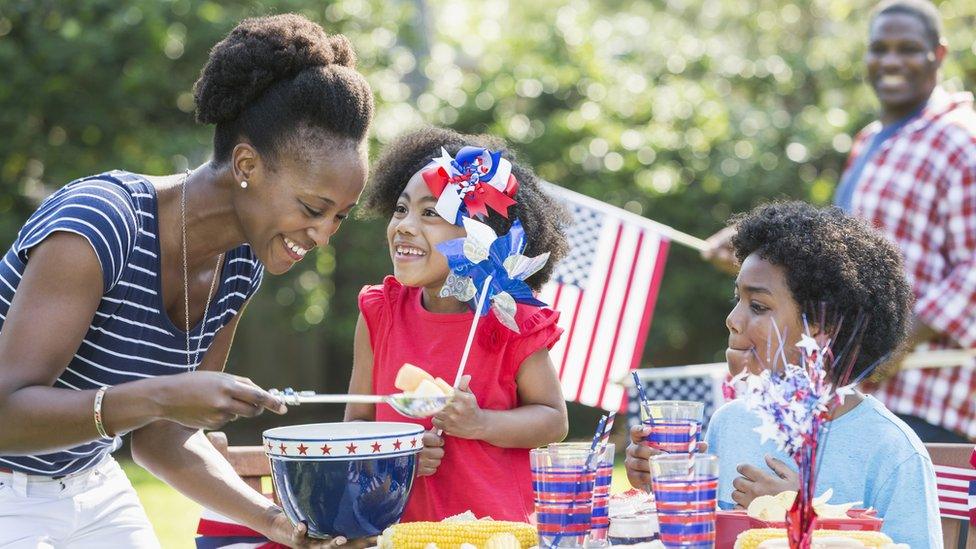Fourth of July: Trump vows to defeat 'radical left' in Independence Day speech
- Published
President Trump: "We are now in the process of defeating the radical left"
US President Donald Trump has used an Independence Day address to vow to defeat the "radical left" as protests sweep the country.
Striking a combative tone, Mr Trump said he would "fight... to preserve American way of life", while railing at "mobs" targeting historical monuments.
Ahead of his speech, Black Lives Matter protesters gathered nearby.
Mr Trump's 2020 election rival Joe Biden said everyone deserved "a full share of the American dream".
The 4 July holiday marks the nation's declaration of independence from Britain in 1776 and is one of the most important days in the national calendar.
Historically presidents have used the occasion to deliver speeches extolling the virtues of unity. Last year Mr Trump spoke of the "extraordinary heritage" of the country at an event with a militaristic theme that involved Air Force flyovers and tanks parked on display.
This year, Mr Trump's address was again followed by a flyover involving various aircraft, including B-52 bombers and F-35 fighter jets.
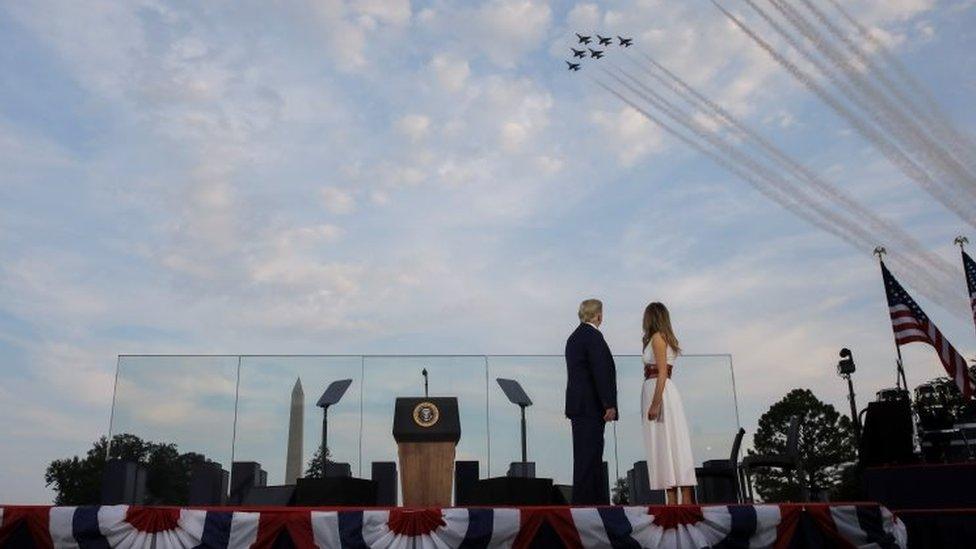
President Trump and First Lady Melania watched military aircraft soar past the White House
Speaking from the White House lawn on Saturday, Mr Trump took aim at protesters that he sees as anti-patriotic who have taken to the streets in the wake of the death in police custody in May of African-American George Floyd.
"We are now in the process of defeating the radical left, the anarchists, the agitators, the looters, and the people who, in many instances, have absolutely no clue what they are doing," he said.
"We will never allow an angry mob to tear down our statues, erase our history, indoctrinate our children."
Statues and monuments of historical figures associated with racism or slavery have been pulled down or removed amid the wave of protests - drawing Mr Trump's ire.
"Their goal is demolition," he declared.
Elaborating on his plan to create a "National Garden of American Heroes" featuring statues of renowned Americans, Mr Trump said the country's rich heritage belonged to citizens of all races.
"The patriots who built our country were not villains," he said. "They were heroes."
After he spoke, protesters in Baltimore, about 40 miles (65km) north of the capital, pulled down a statue of explorer Christopher Columbus - whom Mr Trump had mentioned in his speech - and rolled it into a harbour.
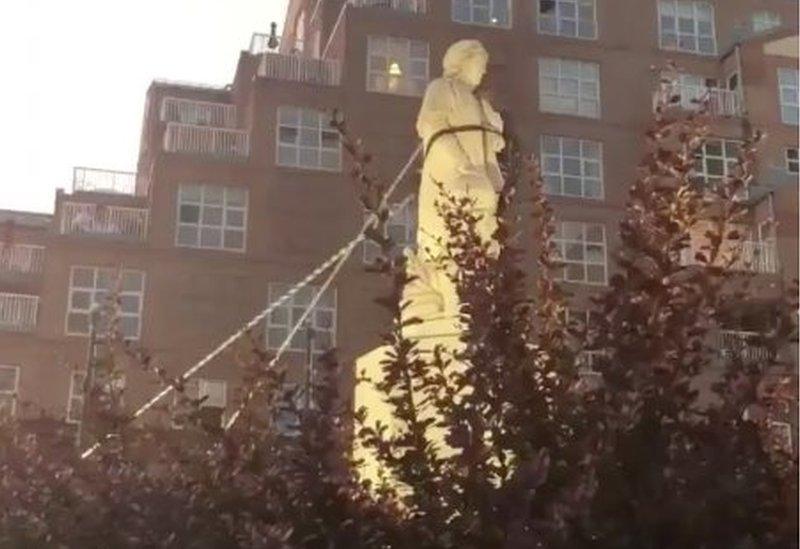
Protesters tied ropes to the statue of Columbus before pulling it down
Many people in the US celebrate the memory of Columbus, who in textbooks is credited with discovering "the New World", the Americas, in the 15th Century.
But Native Americans have long objected to honouring Columbus, saying that his expeditions to the Americas led to the colonisation and genocide of their ancestors.
Meanwhile, in a videotaped address for 4 July, Mr Trump's Democrat challenger for the presidency in November, Joe Biden, said Americans "have a chance now to give the marginalised, the demonised, the isolated, the oppressed a full share of American dream".
Mr Biden, who has accused Mr Trump of fuelling racial tensions, said: "We have a chance to rip the roots of systemic racism out of this country."
Trump touts US 'progress' against virus as cases surge
Flanked by his wife Melania, President Trump spoke to a crowd at the White House that included US soldiers and frontline medical staff.
Despite a nationwide spike in coronavirus cases, Mr Trump touted the country's "progress" against the Covid-19 disease.
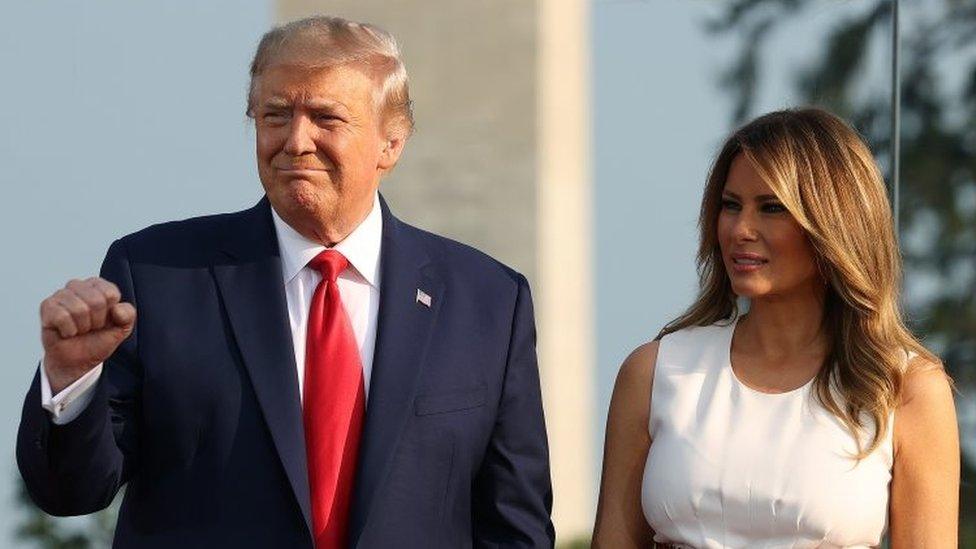
President Trump invited medical staff and soldiers to the 4 July event at the White House
Amid criticism of his handling of the pandemic, he said China - where the virus originated - must be "held fully accountable".
Praising America's "scientific brilliance", Mr Trump said the US "will likely have a therapeutic and/or vaccine solution long before the end of the year".
The head of the World Health Organization, Tedros Adhanom Ghebreyesus, warned in June that scientists may never be able to create an effective vaccine against the coronavirus.
"The estimate is we may have a vaccine within one year," the WHO said. "If accelerated, it could be even less than that, but by a couple of months. That's what scientists are saying."
The US has the world's highest number of coronavirus deaths and infections, and confirmed more than 43,000 new Covid-19 cases in 24 hours on Saturday, according to figures from Johns Hopkins University. Florida, where the outbreak is especially acute, saw 11,458 new cases.
The president made no reference to the nearly 130,000 US deaths linked to the pandemic. He said the US had tested almost 40 million people, adding that 99% of coronavirus cases were "totally harmless" - a claim for which he gave no evidence.
America holds a muted Independence Day
Many 4 July events were cancelled on public health grounds, with beaches in Florida and California closed, city parades cancelled and firework displays curtailed.
Joe Biden tweeted that "this Fourth of July, one of the most patriotic things you can do is wear a mask".
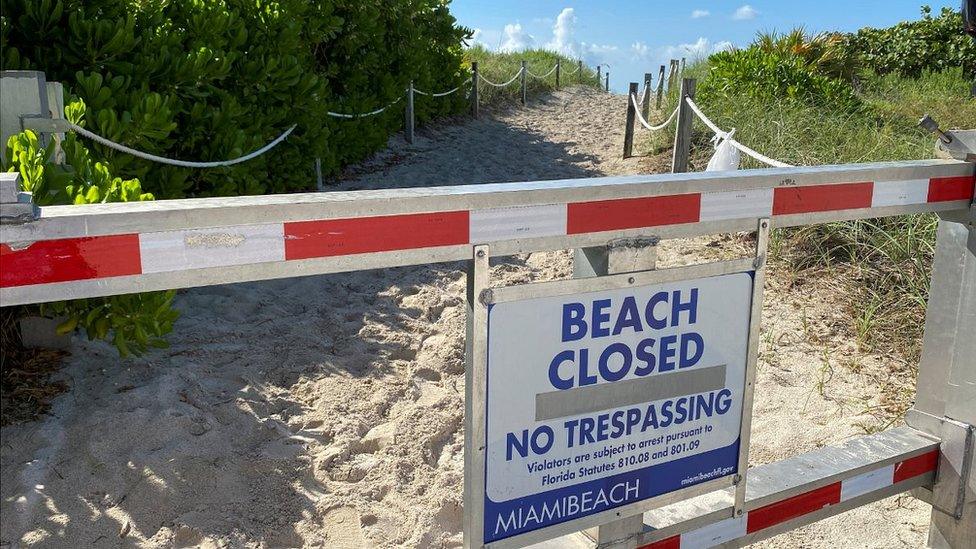
Miami beaches have been closed for the holiday weekend, as have those in Los Angeles
Firework displays are a traditional highlight of 4 July, but an estimated 80% of cities and towns have cancelled their shows.
New York City usually holds an hour-long extravaganza, but this year it was replaced by five-minute displays through the week, organised by Macy's department store, with a final televised one on Saturday - all at undisclosed locations.
Major League Baseball cancelled its 2020 All-Star Game for the first time since World War Two.
President Trump held a rally at Mount Rushmore on Friday
- Published5 July 2020
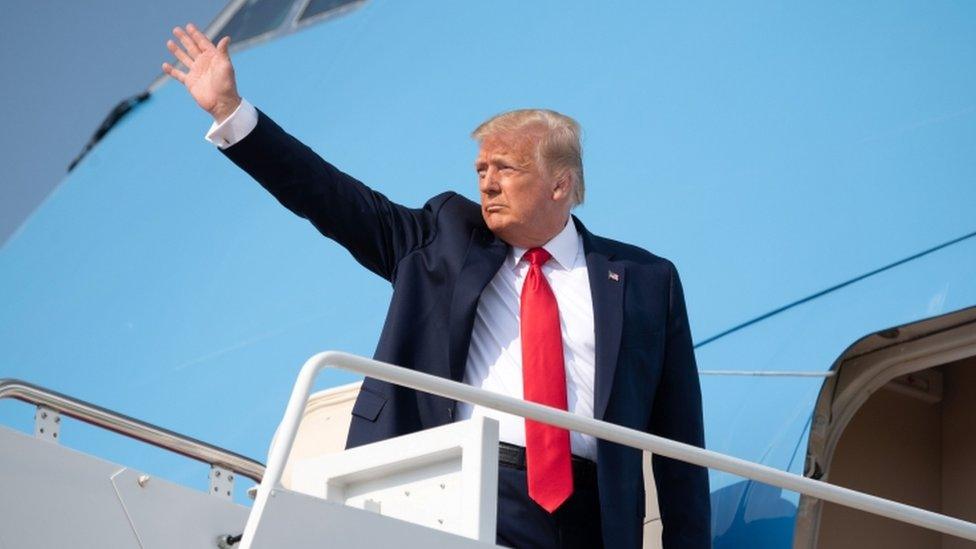
- Published4 July 2020
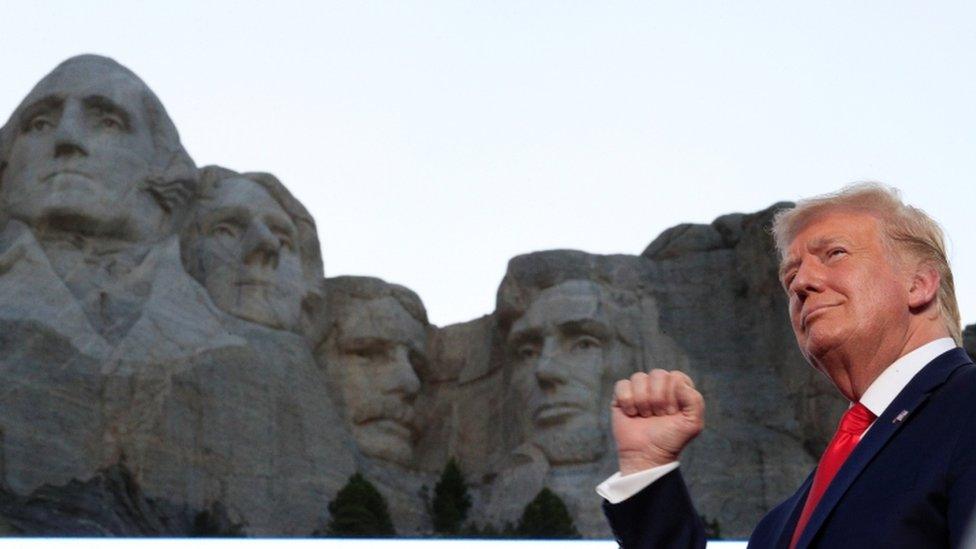
- Published4 July 2020
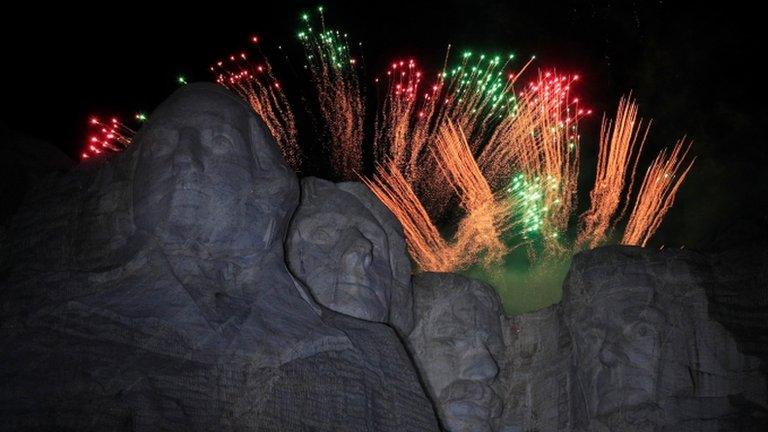
- Published2 July 2020
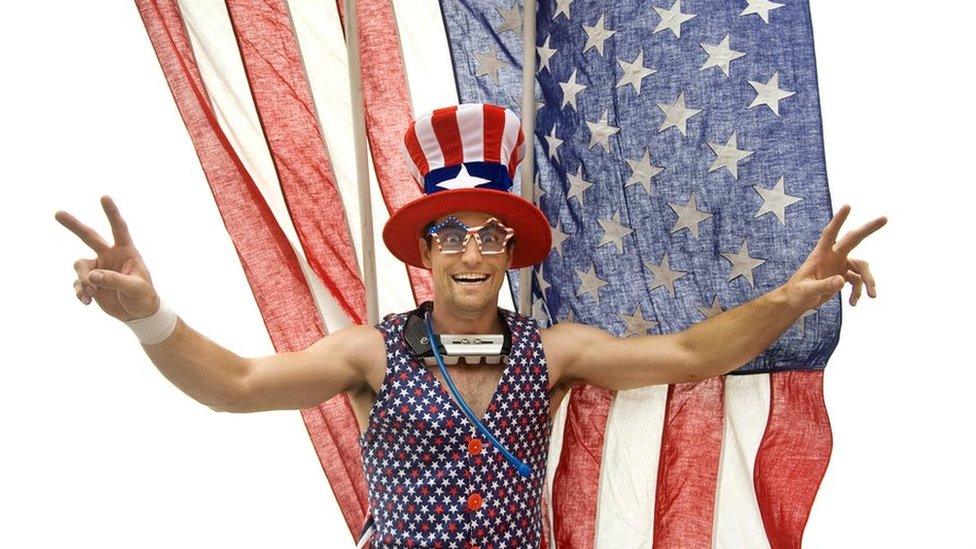
- Published4 July 2023
